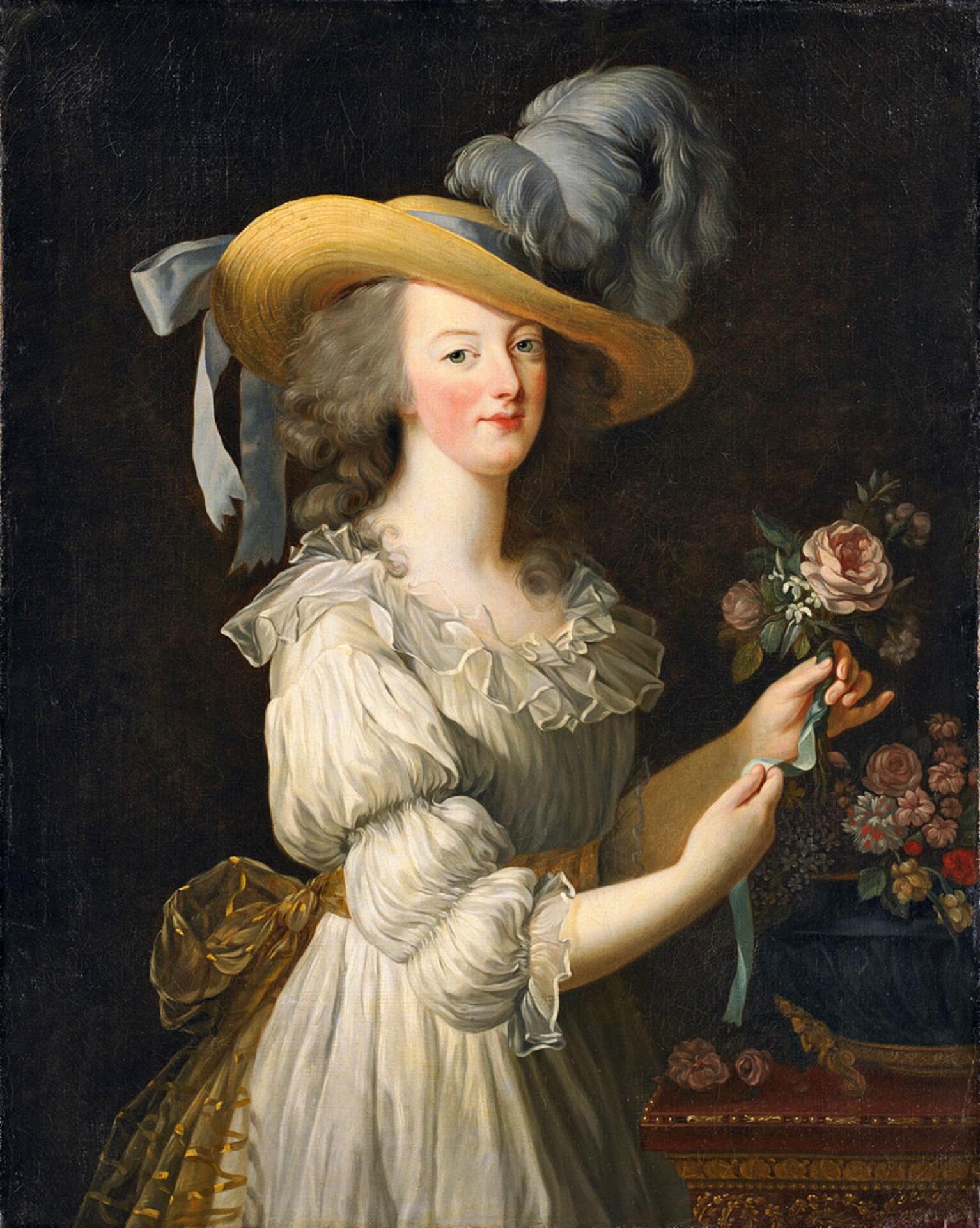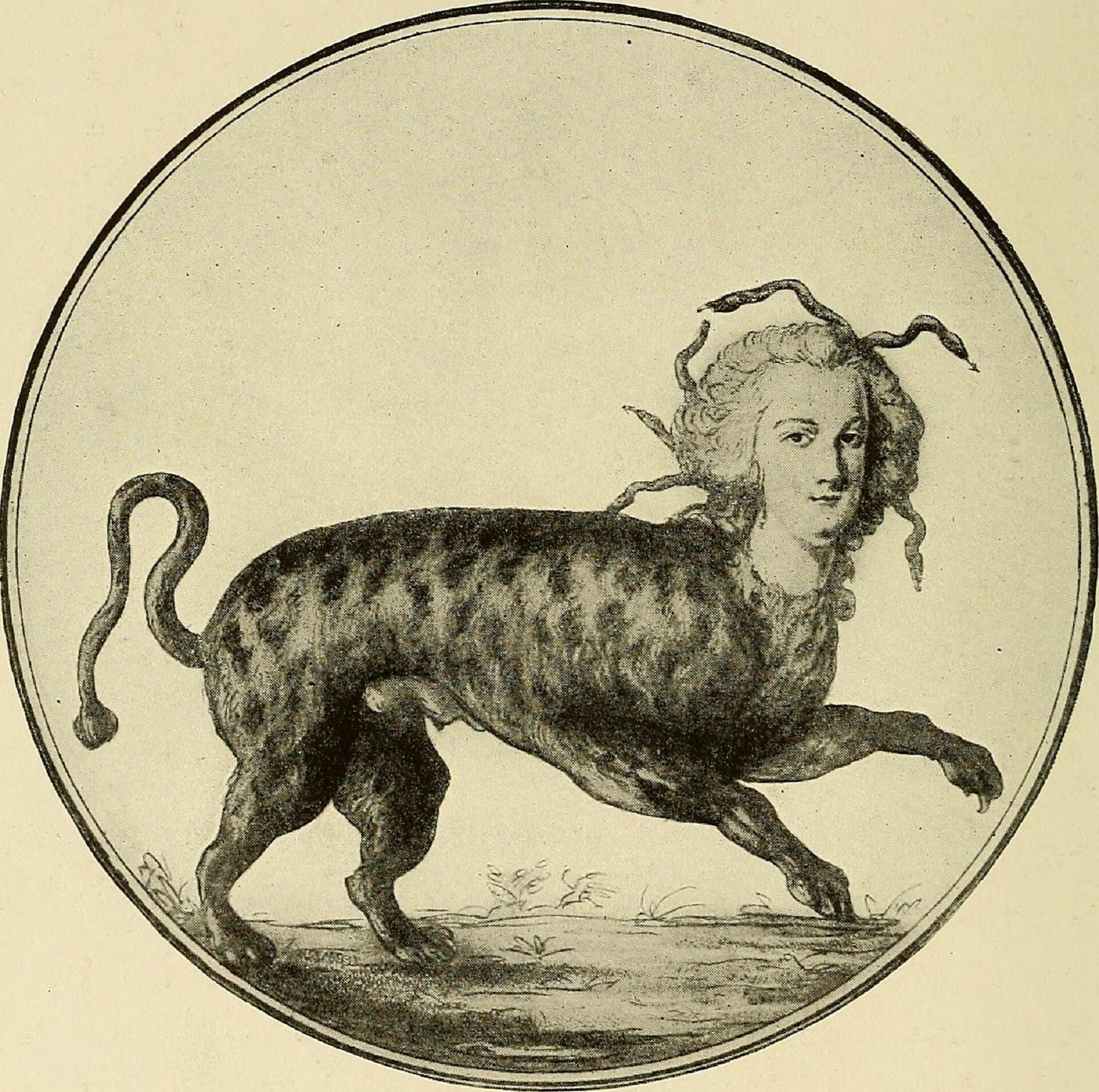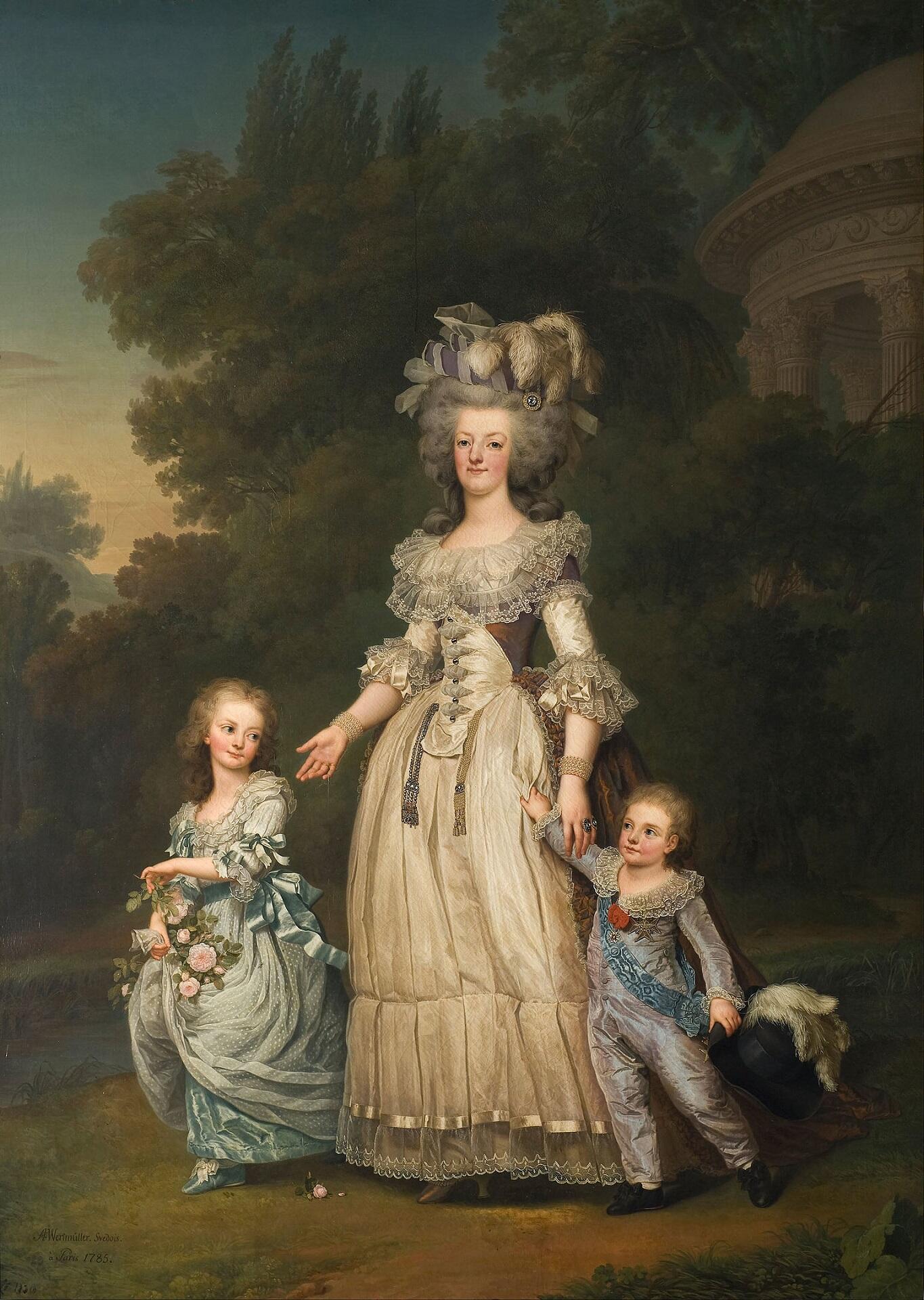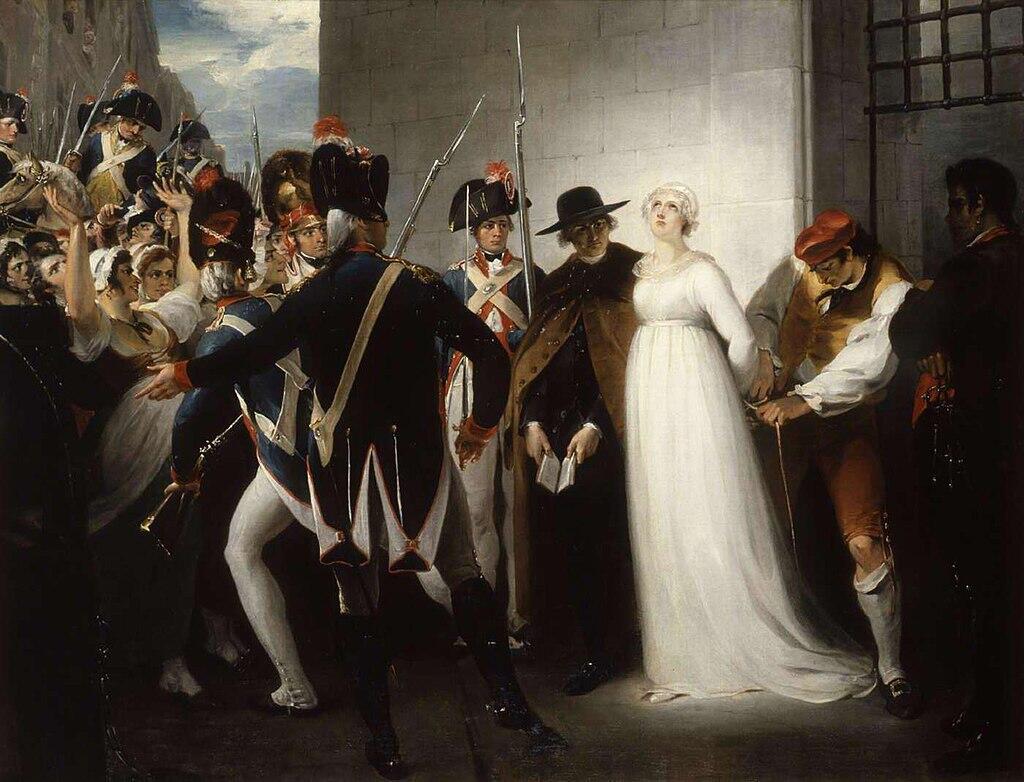We think we have a problem today, with mis- and disinformation flying around the four corners of the internet. But, allegations, false accusations, and smear campaigns are as old as time. They are, in large part, why the last French queen was executed. But, what did Marie Antoinette do to deserve all of that?

Marie Antoinette Facts: a Brief Biography
Young Maria, the 15th child of the Hapsburg monarchs, left her home and family when she was 14 years old. She was a peace offering, and a promise of alliance. Her mother wanted to solidify her realm's bond to France, to defeat Prussian and British imperial ambitions.
Fifteen-year-old Marie Antoinette married in April 1770, by proxy. A month later, she met her husband for the first time, after which the couple affirmed the bond in a ceremonial wedding.
From the start, public reaction to Marie Antoinette was mixed. Those who thought she and the future king made a beautiful couple, smiled on her. Citizens who mistrusted the newly-forged alliance hated her on sight. Women of the royal court counted among those numbers, especially her father-in-law's mistress.
Over time, their petty accusations - of disdain for higher-ranking court members, of wild extravagance, and of impurity added up. Five years into her marriage, the citizenry was blaming her for their economic woes, too. She earned some of that criticism, but not all of it.
Marie Antoinette Facts
1770
Marie Antoinette marries
She adopts the feminine version of her husband's nickname, Le Dauphin
1772
Marie Antoinette makes peace with her father-in-law's mistress
Madame du Barry had started many rumours about Marie Antoinette
1773
La Dauphine's first official engagement
She was received to great acclaim
1774
Louis XVI ascends to the throne
Marie Antoinette becomes his queen consort
1774
Marie Antoinette spends lavishly to decorate her quarters
And to update her wardrobe
1775
The Flour War
Citizens riot because of bread and flour prices
1778
Marie Antoinette bears her first child
The public suspects the baby isn't the king's
1779
Marie Antoinette gets involved in politics
At her mother's urging, which raises suspicions
1782
Citizens begin to openly suspect her of treason
1780s
Citizens openly suspect their queen is promiscuous
1789
The French Revolution is set in motion
1793
Marie Antoinette execution
Took place 10 months after her husband's execution
We must remember that all of this happened because she was a teenaged girl. It would be hard to sum up the French Revolution without factoring in Marie Antoinette's impact. But, was she guilty of all she was accused of? For that, we must examine the charges against her.
Why Was Marie Antoinette Killed?
In hindsight, much of what doomed Marie Antoinette was perception, rather than misdeeds on her part. That, and rumour, plus gossip mills. Even this portrait of her was scandalous, as it showed her in clothing unbefitting a queen.
External factors mattered a lot, too. Europe was not a peaceful place during those times. Wars, shifting allegiances, poor economic conditions, and citizen unrest all contributed to the turmoil of the times.

The privilege of the monarchy, particularly its wealth and security, drove the people mad with rage.
Today's social media is flooded with disdain for the wealthy.
In 1792, the royal family were imprisoned. The revolutionaries claimed their first target, King Louis XVI, in January 1793. For a time, it seemed that might be enough to appease. Marie Antoinette, imprisoned with her children, still had no charges levelled against her.
After the king's execution, Temple Prison guards relaxed their watch. Lawyers and other influential persons quit roaming the halls, as they no longer had a king to seek an audience with. Marie Antoinette finally had quiet to grieve her losses.
Before baring his neck to the guillotine, Marie Antoinette's husband extracted a promise that no harm would come to his family.
The revolutionaries, assured of their strengthening position in European affairs, granted that request.
Changing Fortunes
However, the tide turned against them in March 1793. Austrian forces won the Battle of Neerwinden, which allowed them to reclaim Belgium. Another blow: the War in the Vendée, in the Loire region of France. Victors there recognised Marie Antoinette's son, Louis XVII, as France's rightful king.
Those two events, happening so close together, were enough to condemn the deposed queen. French statesman Maximilien Robespierre further reminded the revolutionaries he had accused her of passing state secrets to their enemies.
The last Queen of France, with her alleged deficits, was fuel to feed the French Revolution. Of course, the citizens had many reasons to revolt. Still, one might say Marie Antoinette was a handy target for their ire.

Marie Antoinette Execution

Despite the boiling rage, the Committee of Public Safety knew that executing the former queen without the appearance of due process would be a mistake. So, they provided her counsel, and gave her a few hours to arrange a defence.
Her trial's outcome was already decided, before she stepped into the dock. As this sketch reveals, the Committee had gone to great lengths to remind the public she was the 'Austrian she-wolf'.
Rather than a salivating beast, courtroom spectators were shocked to see their former queen, frail and grieving her husband's loss. Testimony from more than 40 witnesses included allegations of:
- drunken orgies
- robbing the treasury and sending the money to Austria
- planned massacres
- assaults on French people, guards, and troops
- incest
- continuing the monarchy by declaring her son the king
This was mostly hearsay and lies. One witness, who described drunken orgies, confessed he'd not seen them himself, but heard the rumours of such. Mothers in the gallery refused to credit the incest charge, which her son levied under pressure.
On cross-examination, Marie Antoinette was mostly apathetic. Her responses mainly revolved around "I don't recall", and other weak denials. Only the incest charge provoked a fiery response. In the end, the court cited three charges against her:
Depletion of the treasury
Conspiracy to destroy State security
High treason
At worst, Marie Antoinette expected life in prison. Instead, the court handed down an order of execution. It, along with other key French Revolution events, caused France to abandon the system of rule by monarchy forever.

Where was Marie Antoinette Executed?
In the back of a cart, she was paraded through the streets, wearing a white frock, and her head shaved. With a rope leash around her neck, the cart took an hour to arrive at the Place de la Révolution, pictured above (Place de la Concorde, today).
There, crossing the platform to the guillotine, she apologised for accidentally stepping on her executioner's foot. The crowds didn't hear her; they jeered and crowed, rabid for her blood.
On October 16, 1793, at 12:15, the guillotine's blade whooshed down. Her body came to rest in a mass grave, in a common cemetery, among other headless corpses.
Need more context? See our summary of the French Revolution.
What Happened to Marie Antoinette's Children?

In the hours before her execution, the letter Marie Antoinette wrote to her sister expressed regret at having to leave her children.
Despite all the claims against her, records prove she was a devoted and caring mother. Both to the children she bore, and those she took on.
This table shows what happened to them all:
| Name | Biological / Adopted | Fate |
|---|---|---|
| Marie-Thérèse Charlotte | Biological | Survived; married her cousin; died October 1851 |
| Louis Joseph Xavier François | Biological | Died in childhood, June 1789 |
| Louis Charles, Duke of Normandy | Biological | Died in childhood, June 1795 |
| Marie Sophie Hélène Béatrix | Biological | Died in infancy, June 1787 |
| Francois-Michel Gagné (Armand) | Adopted | Joined the revolutionary army; killed in battle in 1792 |
| Jean Amilcar | Adopted | His teacher took him in |
| Ernestine Lambriquet | Adopted | Taken to safety by a royal governess |
| Jeanne Louise Victoire (Zoe) | Adopted | Sent to a convent boarding school |
As a consequence of the Revolution, Marie Antoinette's adopted/fostered children suffered a reversal in their fortunes. They returned to the uncertain life they knew before she took them in and protected them.

Marie Antoinette's Death and Legacy
Marie Antoinette's beheading failed to contain the bloodlust raging through France. The Reign of Terror continued for 10 more months. In France and abroad, responses to the Marie Antoinette Death fell into two camps.
She deserved it
- "The Revolution was her fault!"
- "Her inordinate gambling!"
- "Her obscenities!"
She was a victim
- "The age of chivalry is gone!"
- "The calculators have succeeded"
- "Never, never more shall we behold..."
About Eating Cake
We often hear that the young queen tossed out that casually cruel phrase quoted above, allegedly as her subjects starved. No evidence proves she said that.
It comes from a book Robespierre wrote. In Les Confessions, he describes a 'grande Princesse'. Upon hearing that the peasants have no bread, she flippantly says "Let them eat brioche!".
Robespierre penned this work in 1767, long before Marie Antoinette arrived in France. It was published in 1782, as the frenzy against her was gaining traction.
Historians are still working hard to undo all the damage done to her legacy. In the end, many see her as a tragic figure, a painfully young woman who was out of her depth, but trying to do her best.
Film archives list many titles that present aspects of the French Revolution. Among them, we find a 2006 biopic, starring Kirsten Dunst as Marie Antoinette. If nothing else, this, and other French Revolution-era films prove the last queen of France's mystique.
Marie Antoinette was:
Summarize with AI:















